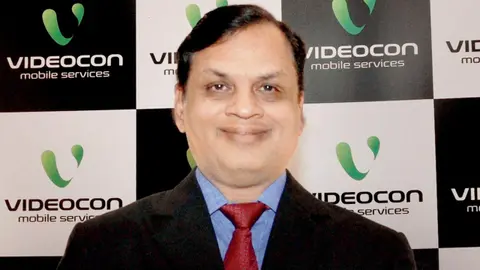Table of Contents
ToggleIntroduction for Videocon Rise & Fall-
Videocon was a prominent Indian multinational conglomerate that was founded in 1987 by Venugopal Dhoot. The company initially started as a manufacturer of television sets and soon diversified into other consumer electronics, home appliances, and telecommunication services.
Videocon’s growth was remarkable, and it became one of the leading players in the Indian electronics market. The company expanded into international markets and had a presence in more than 30 countries across the world.
However, Videocon’s fortunes took a turn for the worse in the early 2010s. The company faced a severe financial crisis, which was worsened by the global economic slowdown and mounting debt. Despite efforts to restructure and sell assets, the company ultimately failed to recover, and in 2018, Videocon was declared bankrupt.
In this article, we will explore the rise and fall of Videocon, examining the factors that led to its initial success and the challenges that ultimately resulted in its downfall. We will also look at the lessons that can be learned from Videocon’s story and how they can be applied to other companies to avoid a similar fate.
Background History of Videocon Group-
The Videocon Group was founded in 1987 by Venugopal Dhoot as a manufacturer of television sets in India. The company quickly gained success and expanded its product line to include other consumer electronics, home appliances, and telecommunication services.
By the mid-1990s, Videocon had established itself as one of the leading consumer electronics brands in India. The company continued to expand its reach both domestically and internationally, entering into new markets across Asia, the Middle East, and Africa.
In 2000, Videocon entered into the oil and gas exploration business with the formation of Videocon Industries Limited. The company acquired several oil and gas assets in India and overseas, marking its entry into the energy sector.
Videocon continued to diversify its business interests in the following years, acquiring stakes in other companies in the telecommunications, power, and retail sectors. The company also established joint ventures with global giants like Toshiba, Thomson, and Skyworth to manufacture and distribute products.
Despite its diversification, Videocon remained primarily a consumer electronics and home appliances company, with a strong brand presence in India and several other countries.
However, in the early 2010s, Videocon’s fortunes took a turn for the worse. The company faced mounting debt, slowing demand, and intense competition, which eventually led to its bankruptcy in 2018. Despite efforts to restructure and sell assets, Videocon was unable to recover from its financial crisis, marking the end of an era for the once-prominent Indian conglomerate.
Key Features of Videocon early Success Journey-
Videocon’s early success journey was characterized by several key features, which played a significant role in the company’s rapid growth and market dominance in the Indian consumer electronics and home appliances industry. Some of these key features include:
- Innovation: Videocon was one of the first companies in India to introduce a range of innovative consumer electronics and home appliances, such as the first Indian-made washing machine with a front-loading design. The company was constantly focused on introducing new and innovative products, which helped it stay ahead of the competition.
- Strong distribution network: Videocon had a robust and well-established distribution network across India, which helped it reach customers in even the most remote parts of the country. The company also had a strong presence in international markets, which helped it expand its reach globally.
- Brand building: Videocon invested heavily in building its brand and creating a strong identity in the minds of consumers. The company’s catchy advertising campaigns and memorable taglines helped it create a strong emotional connection with consumers and establish a dominant position in the Indian consumer electronics and home appliances industry.
- Customer-centric approach: Videocon placed a strong emphasis on understanding the needs and preferences of its customers and designing products that catered to their specific requirements. This customer-centric approach helped the company build a loyal customer base and gain a competitive advantage in the market.
- Diversification: Videocon diversified its product portfolio by expanding into new product categories such as mobile phones, home appliances, and oil and gas exploration. This diversification helped the company reduce its dependence on a single product category and expand its revenue streams.
What led to the downfall of Videocon?
Videocon was a large Indian conglomerate that was primarily involved in the manufacturing of consumer electronics, home appliances, and oil and gas exploration. The company experienced financial difficulties in the years leading up to its downfall, which can be attributed to several factors:
- Heavy debt burden: Videocon had taken on a significant amount of debt to finance its expansion plans, which became unsustainable as the company’s financial performance began to decline.
- Overexpansion and diversification: Videocon had diversified into many different business areas, including oil and gas exploration, telecom, and real estate, which put a strain on the company’s resources and made it difficult to focus on its core competencies.
- Poor management decisions: Videocon’s management made several questionable decisions, such as investing in non-core businesses and acquiring foreign companies at high prices, which contributed to the company’s financial woes.
- Economic slowdown: Videocon’s financial troubles were exacerbated by the economic slowdown in India, which affected consumer spending and made it difficult for the company to generate revenue.
- Legal issues: Videocon was involved in a number of legal disputes, including allegations of fraud and non-payment of loans, which damaged the company’s reputation and made it difficult for it to secure financing.
Ultimately, Videocon’s downfall was a combination of these factors, which led to the company’s insolvency and bankruptcy in 2018.
What happened in ICICI Bank & Videocon case?
The ICICI Videocon case refers to allegations of impropriety against ICICI Bank’s former CEO, Chanda Kochhar, regarding a loan given by the bank to Videocon Industries, a consumer electronics company. Here’s a brief summary of what happened:
In 2009, ICICI Bank, where Chanda Kochhar was the CEO, granted a loan of Rs. 3,250 crore to the Videocon Group. It was alleged that Videocon’s promoter Venugopal Dhoot transferred a sum of Rs. 64 crore to a company owned by Chanda Kochhar’s husband, Deepak Kochhar, through a complex web of companies.
In 2016, allegations of impropriety were made against Chanda Kochhar, alleging that she had facilitated the loan to Videocon in return for benefits to her husband’s company. ICICI Bank initially defended Kochhar, saying that the loan had been granted as part of a consortium of lenders and that Kochhar had recused herself from the decision-making process.
However, in March 2018, the Central Bureau of Investigation (CBI) launched an investigation into the case, and in January 2019, the Enforcement Directorate (ED) registered a money laundering case against Chanda Kochhar, her husband, and Venugopal Dhoot.
In January 2019, Chanda Kochhar was forced to go on leave, and in October 2020, ICICI Bank announced that it had terminated her employment with immediate effect, citing violations of the bank’s code of conduct and internal policies.
The case is still ongoing, and Chanda Kochhar and her husband have denied any wrongdoing. The case has highlighted the issue of corporate governance and the need for transparency in the banking sector in India.
What happened to Venugopal Dhoot?
Venugopal Dhoot, the former Chairman of Videocon Group, was named as an accused in the ICICI Bank-Videocon loan case. However, he was granted anticipatory bail by the Bombay High Court in 2018. Subsequently, in 2019, the Enforcement Directorate (ED) filed a chargesheet against Dhoot, Chanda Kochhar (former CEO of ICICI Bank), and her husband Deepak Kochhar, among others, for alleged money laundering in the case.
In February 2021, the ED attached assets worth Rs. 78.15 crores belonging to Dhoot and his family members in connection with the case. The attached assets included a flat in Mumbai, land in Rajasthan and Maharashtra, and bank accounts. The ED alleged that the attached assets were proceeds of crime generated through illegal transactions and money laundering.
As of now, the case is still ongoing, and Dhoot is yet to be convicted or acquitted of the charges against him.
What happens after Videocon insolvency petition?
After the insolvency petition is filed against Videocon, the following steps are taken:
- Admission of the petition: The National Company Law Tribunal (NCLT) examines the petition and decides whether to admit it or reject it. If the petition is admitted, a moratorium period of 180 days is imposed on Videocon, during which no legal proceedings can be initiated against the company.
- Appointment of Interim Resolution Professional (IRP): The NCLT appoints an IRP to manage the affairs of the company during the moratorium period. The IRP takes control of the company’s assets and liabilities and assesses the company’s financial position.
- Formation of Committee of Creditors (CoC): The IRP calls for creditors to submit their claims against the company. The CoC is formed comprising of the financial creditors and decides on the future course of action.
- Resolution Plan: The CoC invites resolution plans from interested parties to revive the company or sell it as a going concern. The resolution plan is approved by the CoC, and if approved, it is submitted to the NCLT for approval.
- Liquidation: If a resolution plan is not approved within the moratorium period, the company goes into liquidation, and the assets are sold to pay off the creditors.
In the case of Videocon, the company was eventually liquidated as a resolution plan was not approved. The assets of the company were sold, and the proceeds were used to pay off the creditors.
Critical Analysis of Videocon Case-
The Videocon case highlights several critical issues related to corporate governance, transparency, and ethical conduct in India’s corporate sector. One of the main issues in the case is the alleged conflict of interest involving the former CEO of ICICI Bank, Chanda Kochhar, and her husband, Deepak Kochhar, who was a co-founder of a company that received funds from the Videocon Group. The allegations of impropriety and the subsequent investigation by the CBI and ED have raised questions about the integrity of India’s banking system and the accountability of its top executives.
Another critical issue highlighted by the Videocon case is the problem of overleveraged companies in India. Videocon had taken on a significant amount of debt to finance its expansion plans, which eventually became unsustainable, leading to the company’s downfall. The case highlights the need for companies to exercise caution when taking on debt and the importance of prudent financial management to ensure long-term stability and sustainability.
The Videocon case also underscores the importance of transparency and accountability in the corporate sector. The allegations of fraud and corruption in the case raise questions about the effectiveness of regulatory mechanisms and the role of auditors in detecting and preventing such malpractices. The case highlights the need for stronger regulatory oversight and the importance of conducting thorough due diligence when granting loans or investing in companies.
Finally, the Videocon case highlights the challenges of resolving insolvency and the need for an effective bankruptcy framework in India. The case demonstrates the difficulties of balancing the interests of different stakeholders in the insolvency resolution process, including creditors, employees, and shareholders. The case highlights the need for a robust insolvency framework that balances the interests of all stakeholders and ensures a fair and equitable resolution of insolvency cases.
In conclusion, the Videocon case highlights several critical issues related to corporate governance, transparency, and ethical conduct in India’s corporate sector. The case serves as a wake-up call for companies to exercise caution when expanding and taking on debt, the importance of transparency and accountability in corporate governance, and the need for a robust insolvency framework to ensure a fair and equitable resolution of insolvency cases.
Conclusion for Videocon Rise & Fall-
Videocon, once a leading Indian conglomerate, rose to prominence through its successful foray into the consumer electronics and home appliances market. The company’s expansion into other business areas such as oil and gas exploration, telecom, and real estate, however, proved to be detrimental to its financial stability.
Heavy debt, poor management decisions, and legal disputes further weakened the company’s position, and the economic slowdown in India further exacerbated its troubles. Ultimately, Videocon’s downfall culminated in its insolvency and liquidation in 2018, leaving its creditors to bear the brunt of its financial collapse.
The rise and fall of Videocon serve as a cautionary tale of the importance of financial prudence, strategic diversification, and strong corporate governance in sustaining long-term success. It highlights the need for companies to remain focused on their core competencies and exercise caution when expanding into new business areas.



